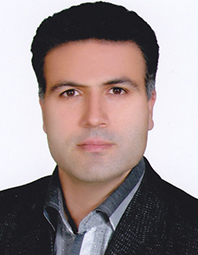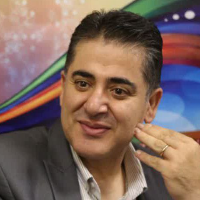Developing a Problem-Solving Training Program and Evaluating Its Effectiveness on Communication Interactions of Slow-Paced Students with Down syndrome
The study aimed to design and investigate the effectiveness of family-centered problem-solving interventions on communication interactions in slow-paced students with Down syndrome. This quasi-experimental study was a pretest-posttest-follow-up with a control group. The statistical population included 67 slow-paced female and male students with Down syndrome in Kermanshah. Thirty slow-paced students with Down syndrome (15 girls and 15 boys) in the academic year 2021-2022 were selected using the purposive sampling method and randomly assigned to two experimental groups (n=15) and controls (n=15). The experimental group participated in fifteen one-hour sessions of the “I Can Problem Solve” (ICPS) workshops, while the control group did not receive any training. The Matson Social Skills Scale (MESSY) (1983) was used to collect the data. Data analysis was performed using SPSS version 24 with repeated measures. The experimental group’s results showed a significant difference between pre-test-post-test scores in social skills, antisocial behavior, aggression, impulsive behavior, and peer relationship (P=0/001). There was no significant difference between post-test-follow-up scores, indicating the stability of the effect. Despite increasing the mean score, there was no significant difference in the high self-confidence and superiority components. Due to the impact of the family-centered problem-solving intervention, this educational program at home and school is of great importance for parents, educators, and students with Down syndrome
-
The Effectiveness of Family-Centered Problem Solving Training Program on Parental Interaction Specific Learning Disabilities Students
Maryam Seidy, Keivan Kakabaraee *
Empowering Exceptional Children, -
تاملی پیرامون برخی از مسائل آموزشی، فرهنگی و اجتماعی ایران
*
نشریه توانمندسازی کودکان استثنایی، بهار 1404 -
Development of a Comprehensive Parenting Program with a Rational Approach
Maria Khalili Jamnani, Masoud Gholamali Lavasani *, Ahmad Abedi, Gholamali Afrooz
Journal of Experimental and Cognitive Psychology, -
Analysis of number sense on working memory profile in students with Math learning disorder
Aliakbar Arjmandnia, Fatemeh Mojaver*, Shirin Mojaver
Journal of Exceptional Children, Winter 2025 -
Presenting a conceptual model for identifying effective factors in students' talent identification (Meta Synthesis Approach)
Parinaz Rahmani Barouji, Mitra Ezati*, Javad Pourkarimi, Aliakbar Arjmandnia
Managing Education in Organizations,





